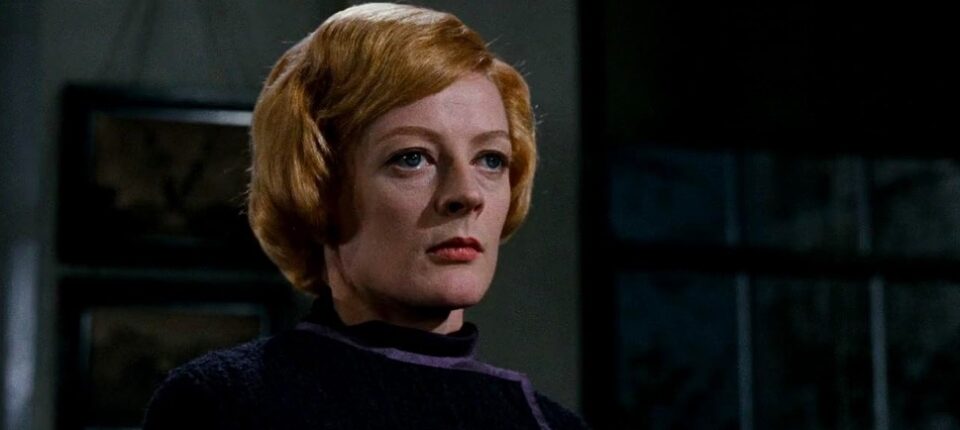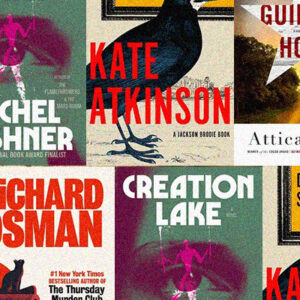Dame Maggie Smith, the consummate English actress who immortalized such characters as Jean Brodie (The Prime of Miss Jean Brodie), Diana Barrie (California Suite), Granny Wendy (Hook), Professor Minerva McGonagall (the Harry Potter films), and Dowager Countess Violet Crawley (Downton Abbey and its film sequels), among countless others, has passed away at age 89.
I’ve been sitting here at my computer for a few hours, attempting to write a second paragraph, a second sentence that might carry this reflection towards the emotional thesis about Smith’s career and impact that I have planned out, but I can’t seem to write an acceptable bridge to it. I keep stopping, stuck by my inability to effectively, elegantly maneuver around the enormous swell of sadness I feel. I am bereft, cinema is bereft.
I loved Maggie Smith. Of all the performers, of all the celebrities I watched onscreen in my lifetime, Maggie Smith meant a great deal to me. She had an extraordinarily wide range, and yet all her roles were connected to one another with a certain spirit: she was so formidable, so funny, so fierce. Her name on a movie poster or a DVD cover (or even, to go back a bit, a VHS box), has always been enough to get me to watch that film.
She began her career as a stage actress, with her earliest breakout role as Desdemona opposite Laurence Olivier in Othello at the National Theater in 1962. When she reprised the role in the 1965 film adaptation, she was nominated for her first Academy Award. She would go on to be nominated for six, winning for two.
Maggie Smith was not in many crime movies. But she was often the most memorable part of the ones that she was in: Dora Charleston in Murder by Death, Miss Bowers in Death on the Nile, and Constance, Dowager Countess of Trentham in Gosford Park. And we cannot forget her turn as the stern, intolerant, but ultimately-supportive Mother Superior of St. Katherine’s in Sister Act. She could whip that steeliness into provincial villainy just as easily as stony protectiveness or begrudging kindness. She had that twinkle in her eye, an overwhelming wittiness, and and a knack for nuance that was so razor sharp that she could be flip and solemn at the same time, an affective style that would become her trademark.
Since the announcement of Smith’s passing, earlier today, I have watched an outpouring of tributes and trivia about her: an endless, adoring parade of praise and respect. Maggie Smith was one of those actors whose openness to many different kinds of roles kept reinventing her for younger and younger generations. By the time she appeared as the no-nonsense Professor McGonagall in the Harry Potter films, my generation had already seen her as the elderly Wendy in Hook, Mrs. Medlock in The Secret Garden, and many others.
As an editor of this crime website, I find myself wishing she had appeared in more crime movies. Not simply quaint English mysteries, either, but maybe even some more intense crime films. I’m not saying she’d need to take things to a Helen Mirren level, but perhaps do something like her peer, Dame Judi Dench, and play M in a Bond film, or something. This isn’t because I find Smith’s career wanting in any way, but because I love seeing her in things so much and I find that she always makes any project even more interesting, that I want her to be in everything. But now I will simply be grateful for the riches that I already have, the extraordinary oeuvre that she left in our care.

















